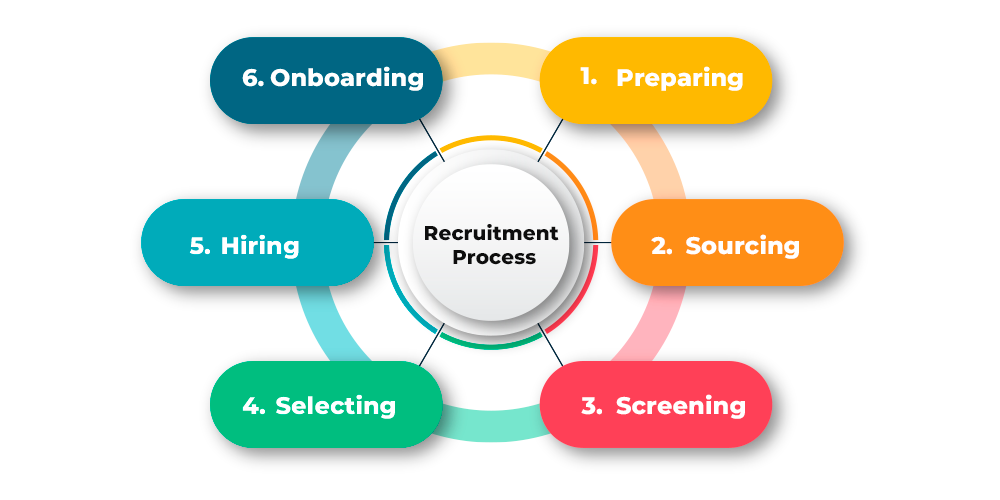Recruitment Process
What is the Recruitment Process?
Definition:
Recruitment Process Automation (RPA) refers to the application of technology, artificial intelligence (AI), and machine learning (ML) to automate and optimize the entire recruitment lifecycle. This encompasses activities from requisition creation and job posting to candidate assessment, offer management, and beyond.
Analogy:
Imagine Recruitment Process Automation as an expert conductor orchestrating a symphony. Like a conductor coordinates various instruments to create harmonious music, RPA seamlessly coordinates and automates diverse recruitment tasks, ensuring a smooth and efficient process for both recruiters and candidates.
Further Description:
Recruitment Process Automation involves the integration of technology into key stages of talent acquisition, including:
Requisition Management: Automated systems assist in creating and managing requisitions, ensuring accurate job descriptions and aligning hiring needs with organizational goals.
Job Posting and Distribution: RPA tools automate the posting of job openings on various platforms, reaching a wider audience and attracting diverse candidates.
Candidate Sourcing and Screening: Automation streamlines candidate sourcing by leveraging AI to identify potential matches, while screening processes are optimized through intelligent algorithms.
Assessment and Evaluation: RPA facilitates the creation and deployment of pre-employment assessments, saving time and providing standardized evaluations for a fair comparison of candidates.
Interview Scheduling: Automated scheduling tools coordinate interview dates and times, taking into account the availability of both recruiters and candidates, minimizing scheduling conflicts.
Offer Management: RPA assists in generating and managing offer letters, ensuring a swift and error-free process for extending employment offers.
Onboarding Automation: Similar to recruitment automation, RPA extends to the onboarding process, automating paperwork, compliance checks, and orientation materials.
Why is Recruitment Process Automation Important?
Efficiency and Consistency: RPA ensures a consistent and standardized recruitment process, reducing manual errors and expediting time-to-fill metrics.
Enhanced Candidate Experience: By automating routine tasks, recruiters can dedicate more time to building meaningful connections with candidates, improving the overall candidate experience.
Data-Driven Insights: Recruitment Process Automation generates valuable data, enabling HR professionals to analyze trends, measure recruitment effectiveness, and make data-driven decisions.
Cost Savings: Automation of repetitive tasks reduces operational costs, allowing organizations to allocate resources strategically and invest in more strategic HR initiatives.
Examples and Usage:
Applicant Tracking Systems (ATS): Centralized platforms automate the tracking of applicants, providing a comprehensive view of the recruitment pipeline.
AI-Powered Sourcing Tools: Tools that use AI to identify and engage with potential candidates, ensuring a diverse and qualified talent pool.
Automated Interview Platforms: Platforms that facilitate automated video interviews, enabling efficient evaluation of candidates at scale.
Key Takeaways:
- Recruitment Process Automation leverages technology to streamline and optimize the entire talent acquisition lifecycle.
- It encompasses requisition management, candidate sourcing, assessment, interview scheduling, offer management, and onboarding.
- Benefits include increased efficiency, a superior candidate experience, data-driven decision-making, and significant cost savings.
- Examples of Recruitment Process Automation tools include Applicant Tracking Systems (ATS), AI-powered sourcing tools, and automated interview platforms.





